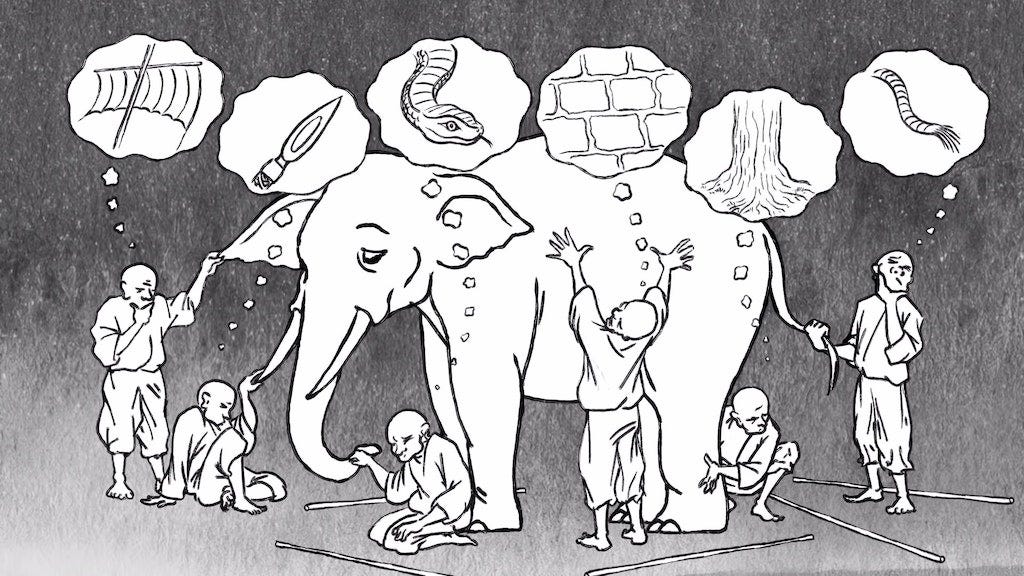Rashomon Effect
🧠 Psych - 148/200
Hello Reader,
Today, let me tell you about another interesting thing called Rashomon Effect.
What is it?
The Rashomon effect is the situation in which an event is given contradictory interpretations or descriptions by the individuals involved, and is a storytelling and writing method in cinema meant to provide different perspectives and points of view of the same incident. (wiki.)
The effect is named after Akira Kurosawa's 1950 film Rashomon, in which a murder is described in four contradictory ways by four witnesses.
Example:-
One of the famous example which explains this effect. Blind men and an elephant [1].
Why do I need to know?
Neuroscientists have found that when we form a memory, our interpretation of visual information is influenced by our previous experiences and internal biases. …Even if we were able to encode a memory accurately, recalling it incorporates new information that changes the memory. And when we later recall that event, we typically remember the embellished memory instead of the original experience. [2]
References & Studies: -
https://en.wikipedia.org/wiki/Blind_men_and_an_elephant
https://laughingsquid.com/rashomon-effect/
The Psych Handbook is a compilation of 100+ biases present in Psychology.
Liked reading this? Take a look at,
Short informative videos on The Brain Psych 🧠
Visually beautiful posts on Psych (@thebrainpsych)
Looking for previous issues? Take a look at the Archives.


